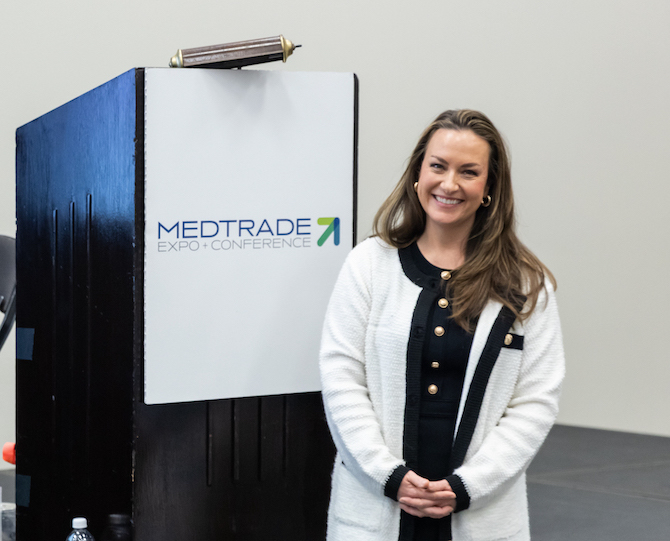ATLANTA – DMEPOS Suppliers are no strangers to audits. If you provide equipment and supplies to Medicare FFS patients, audits seem to be familiar, if not annoying, territory. Unfortunately, it’s not only Medicare FFS audit activity that is on the rise. In addition to the usual government contractors auditing claims for fraud, waste, and abuse prevention, Managed Care and Commercial plans also show an increase in audit activity.
The DME MACs have continued to conduct a “business as usual” approach with the Targeted Probe and Education (TPE) program, maintaining an array of medical equipment and supplies on their audit lists. The RAC, while not having added any new projects to their approved issues list since 2023, still continues to conduct both complex and automated reviews, on a smaller scale than years past.
 Even the SMRC has been less active in the last few years, compared to the number of audits experienced by DMEPOS suppliers in the past. In fact, the SMRC only recently added two new DMEPOS categories, Urinary Catheters and Surgical Dressings, to their current projects list. Both of which were likely triggered by industry reports of excessive billing of both catheters and wound care.
Even the SMRC has been less active in the last few years, compared to the number of audits experienced by DMEPOS suppliers in the past. In fact, the SMRC only recently added two new DMEPOS categories, Urinary Catheters and Surgical Dressings, to their current projects list. Both of which were likely triggered by industry reports of excessive billing of both catheters and wound care.
UPIC audit activities have begun to increase in the last six months, with many types of products guided by the OIG’s work plan. And like always, there is a bit of overlap between the categories amongst contractors. For example, suppliers have seen crossover audits on surgical dressings from the DME MAC, SMRC and UPIC. The OIG’s work plan has also triggered increased audits in Managed Care, following a report that UPICs conducted audit activities much more frequently in the FFS Medicare space, although their large contract agreements specifically require equal work amongst Medicaid plans.
From a bird’s eye view, it seems that claims audits are “status quo.” However, the challenges are within the reviews themselves, more specifically, the review findings. Our audits and appeals team at vHG has seen an increase in incorrect guidelines being applied to DMEPOS audits, most frequently coming from the UPICs. This presents an unfair burden on suppliers, allocating time and resources to gather requested documents for auditors to review, only to be met with incorrect findings.
For example, in one instance, a supplier received an extremely high error rate on oxygen claims being denied for medical necessity. Upon further review, the claims (all with dates of service AFTER September 1, 2023) were being denied for missing the oxygen Certificate of Medical Necessity (CMN). Ironic considering the CMN was discontinued for claims with dates of service after January 1, 2023.
UPICs improperly applying high error rates on claims is especially frustrating, considering the UPICs have the most power of any other audit contractor, with the ability to suggest revocation, impose extrapolations, and payment suspensions. Not to mention the administrative burden suppliers are confronted with, by way of appealing these claims to Redetermination and responding to overpayment requests, which can trickle down to secondary payers.
A new topic appearing on the OIG’s Work Plan is the area of provider enrollment, which has seen increased scrutiny since the formation of the National Provider Enrollment contractors (NPEs). In fact, the work plan includes two separate areas of enrollment scrutiny, surety bonds and Medicaid enrollment scrutiny. And while the sentiment is there – prevent the bad players from getting in the game – the reality is this approach has yet to curb fraud, waste and abuse in Medicare and Medicaid spending. If nothing else, the additional scrutiny on provider enrollment functions should tell suppliers that they need to have a better knowledge of their enrollment record, and understand their responsibilities as mapped out in the DMEPOS Supplier Standards.
Gazing into the crystal ball to outline future expectations has become exceedingly challenging, as the new administration has made sweeping changes to both departments of Health and Human Services (HHS) and Centers for Medicare and Medicaid Services (CMS). What we do know is there seems to be a heightened focus on combatting fraud and abuse amongst Medicare and Medicaid spending. How this will affect DMEPOS is still unclear and what that means for the future of audits is widely uncertain. For now, a supplier’s best defense against audits is a strong compliance program, which should include licensing and enrollment functions.
Kelly Grahovac is general manager, The van Halem Group, Atlanta.

